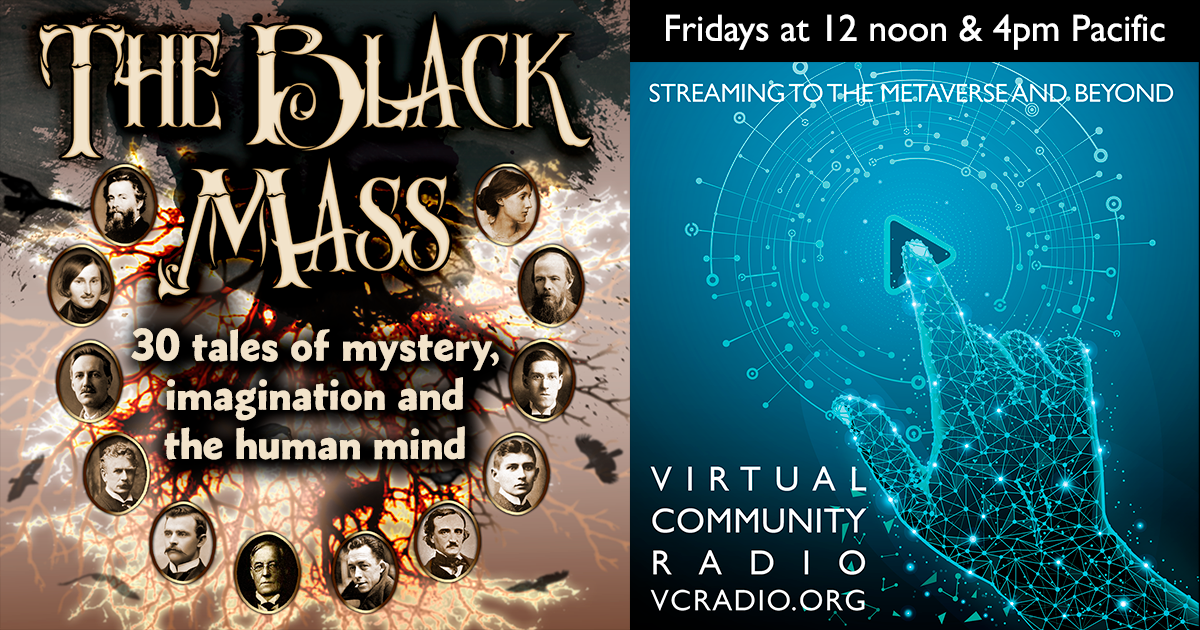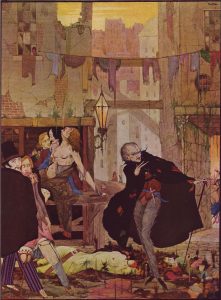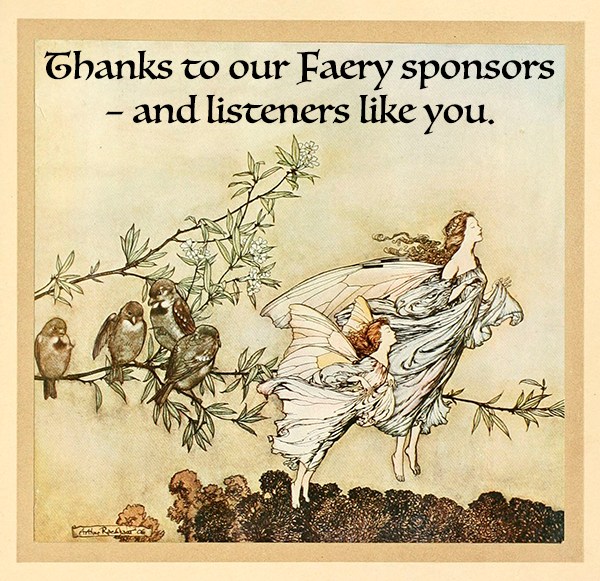The Black Mass: The Man Of The Crowd by Edgar Allan Poe

Join us on Friday at a little after 12 noon or 4pm Pacific time, 8pm or midnight in the UK , for another episode in the landmark radio drama series The Black Mass, created by the late Erik Bauersfeld and his colleagues at the Pacifica radio station KPFA in Berkeley, California, over fifty years ago. In 30 chilling tales of mystery, imagination and the human mind, The Black Mass brings you some of literature’s most haunting stories, by masters of the craft — many of whom are best-known in other fields. Many thanks to John Whiting, co-producer of many of these recordings, and Erik Bauersfeld himself, for permission to broadcast these classic recordings.
Note that the programme will not begin until the track playing at the top of the hour has finished, so the actual start time of the episode may be a few minutes after the hour.
Today: “The Man Of The Crowd” by Edgar Allen Poe

Illustration for Edgar Allan Poe’s story “The Man of the Crowd” by Harry Clarke (1889–1931), first printed in 1923.
Edgar Allan Poe (January 19, 1809 – October 7, 1849) was an American writer, poet, editor, and literary critic. Poe is best known for his poetry and short stories, particularly his tales of mystery and the macabre. He is widely regarded as a central figure of Romanticism in the United States and of American literature as a whole, and he was one of the country’s earliest practitioners of the short story. He is also generally considered the inventor of the detective fiction genre and is further credited with contributing to the emerging genre of science fiction. Poe was the first well-known American writer to earn a living through writing alone, resulting in a financially difficult life and career.
“The Man of the Crowd” is a short story by American writer Edgar Allan Poe about a nameless narrator following a man through a crowded London. It was first published in 1840.
The story is introduced with the epigraph “Ce grand malheur, de ne pouvoir être seul” — a quote taken from The Characters of Man by Jean de La Bruyère. It translates to “This great misfortune, of not being able to be alone.” This same quotation is used in Poe’s earliest tale, “Metzengerstein”.
The Black Mass artwork was created by Terry Lightfoot.



















